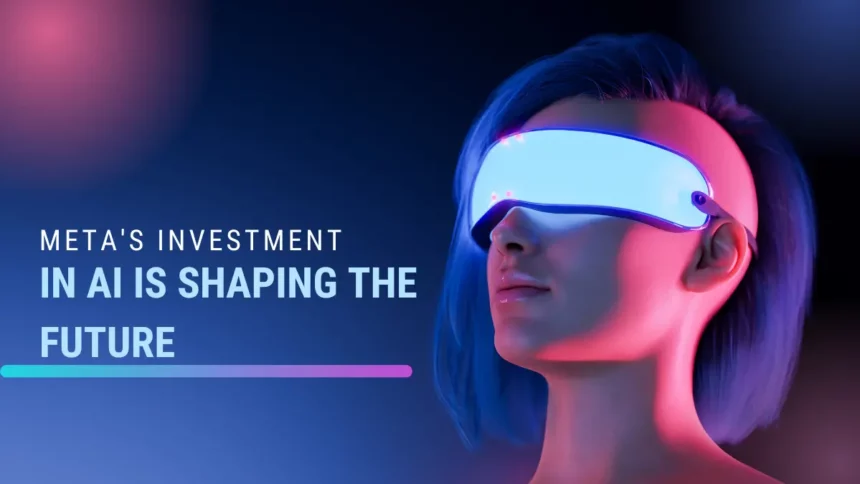Meta (formerly Facebook) may have recently lost $14 billion, but the concept of the “metaverse” remains a crucial focus for the tech giant. CEO Mark Zuckerberg is undeterred, persisting in his enthusiasm for virtual reality and the metaverse.
Meta has gained its reputation for innovative apps such as WhatsApp, Instagram, and Messenger. Still, the company’s investments in emerging technologies have distinguished it as a leader in the tech industry. Meta has dedicated substantial resources to artificial intelligence (AI), a move that could push the era of AI closer to Meta’s applications.
In the quest to implement AI in their products and services, Meta has assembled a team of esteemed experts to develop AI applications. The company aspires to use the latest advancements in AI to provide its users with even more personalized and immersive experiences.
Zuckerberg highlighted Meta’s refreshed emphasis on AI in a recent blog post, stating that “AI will help us build the next generation of computing platforms, from augmented and virtual reality to autonomous vehicles and robots.”
He is determined to invest heavily in AI and has brought a world-class team of researchers and engineers to help achieve Meta’s goals.
OpenAI’s popularity and the emergence of alternative options in Tech companies like Google and Microsoft have triggered alarm within the North American tech company Meta. In a brief statement, Meta’s CEO, Mark Zuckerberg, declares they have begun constructing a top-tier team dedicated to advancing generative artificial intelligence. Although his speech is concise and lacking in detail, Zuckerberg hints at the potential applications that Meta could harness with AI.
The CEO affirms that generative AI could be seamlessly integrated into many of Meta’s products and applications, including WhatsApp and Messenger. In essence, these messaging applications could utilize the functionalities witnessed in ChatGPT to enhance communication between users.
Instagram, another platform under Meta’s umbrella, could also reap benefits from AI, particularly in developing imaginative filters and novel ad formats.
Furthermore, Zuckerberg suggests that AI could enrich video and other forms of experiences. However, he concedes that “there is still a lot of work to be done before we arrive at truly futuristic experiences.” Nonetheless, he expresses his eagerness and anticipation toward the development of new, innovative technologies along the way.









